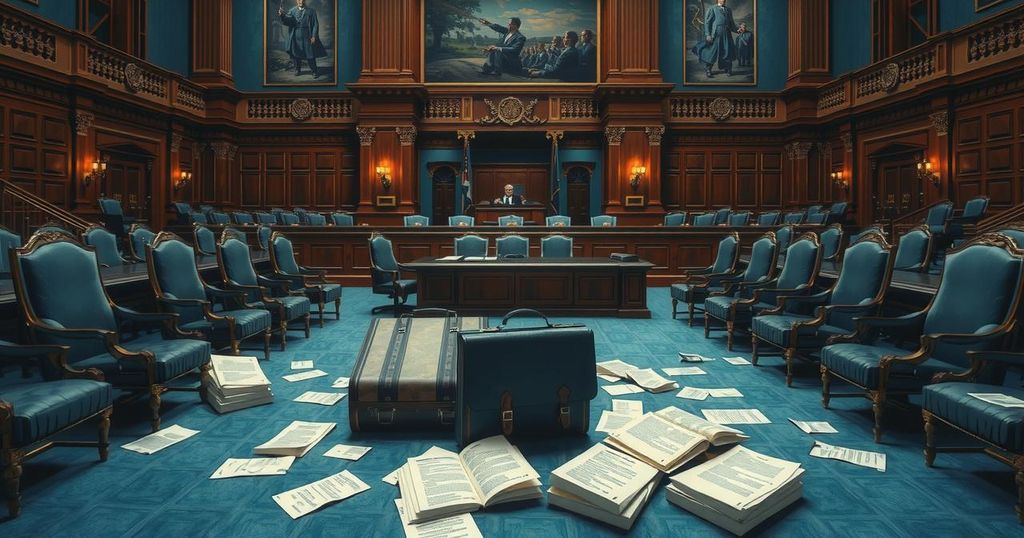Nigerian Lawmakers Accept Bribes Amid Quorum Crisis for Tinubu’s Proclamation

Allegations have surfaced that Nigerian lawmakers accepted bribes of up to $25,000 each to support President Bola Tinubu’s controversial emergency proclamation in Rivers State. The administration is scrambling to secure legislative backing as attendance in the House falls short of a quorum. This incident raises serious concerns about the state of democracy in Nigeria amid political tensions.
Lawmakers in Nigeria’s National Assembly have reportedly accepted bribes of up to $25,000 to endorse President Bola Tinubu’s emergency proclamation in Rivers State. This move is aimed at averting a significant setback for the President after key figures in his administration expressed concern over dwindling legislative support. Eleven lawmakers—including seven senators and four representatives—distinctly confirmed the bribe offers to the Peoples Gazette.
On Thursday morning, legislative attendance was notably low, with only 113 members present in the House, failing to meet the 120-member quorum requirement. Conflicts arose particularly among lawmakers from Borno, who received instructions from their governors to abstain from supporting the emergency rule. Insiders disclosed that discussions of cash incentives were initiated by Tinubu’s loyalists in response to the growing absenteeism among lawmakers.
Following extensive interviews, it was revealed that most of the eleven legislators who acknowledged receiving bribe offers had accepted $25,000. Others were offered $15,000, while some legislators refused the offers altogether. Only Senator Seriake Dickson, a member of the opposition, indicated that he did not receive such offers. These transactions primarily occurred across various locations in Abuja, generating widespread concern about the implications of such actions on democratic processes.
Tinubu’s proclamation of emergency rule was announced on Tuesday night, citing rising political tensions involving Governor Simi Fubara and legislators associated with Nyesom Wike. This decree, which controversially includes the removal of Fubara and the dissolution of local government, has faced significant backlash from legal experts and the public, questioning its constitutionality. The urgent need for legislative approval puts additional pressure on the President, who has a limited time to secure the necessary backing from both chambers of the National Assembly, requiring two-thirds approval, which includes 240 House members and 73 senators.
The unfolding situation within the Nigerian National Assembly showcases a concerning intersection of financial incentives and legislative procedures in response to President Tinubu’s emergency proclamation. The reported acceptance of bribes by lawmakers reflects a climate of fear and reluctance among legislators, as they navigate political tensions and pressures from their constituencies. This incident raises critical questions concerning the integrity of democratic processes in Nigeria, highlighting the urgent need for reforms to safeguard the system.
Original Source: gazettengr.com







